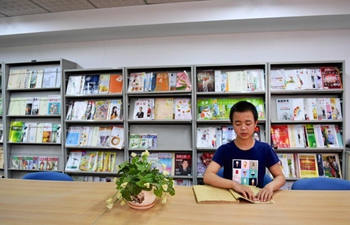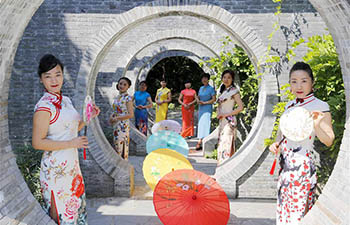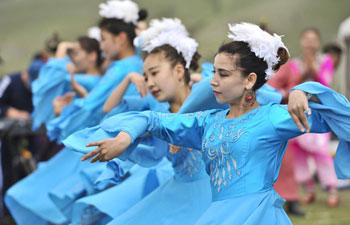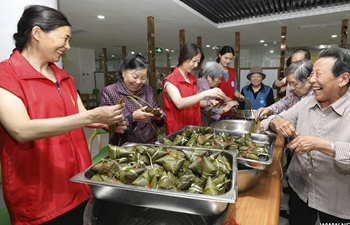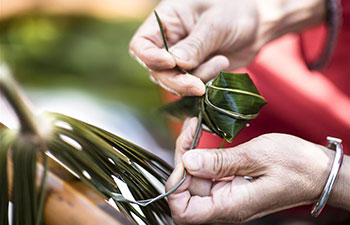by Alexia Vlachou
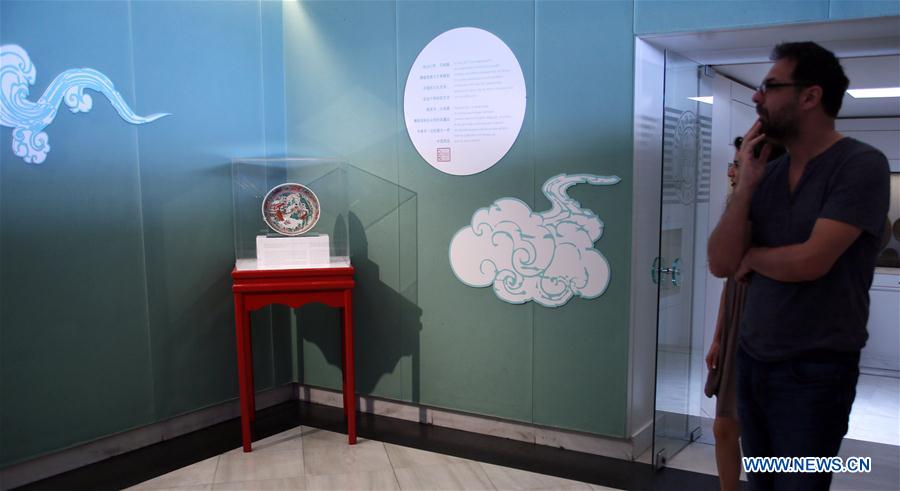
Visitors look at the ancient Chinese porcelain dish exhibited at the Benaki Museum in the Greek capital Athens on May 19, 2017. A rare ancient Chinese porcelain dish exhibited at the Benaki Museum in the Greek capital is giving local visitors a taste of Chinese history as the two countries celebrate their cultural exchange year in 2017. (Xinhua/Marios Lolos)
ATHENS, May 31 (Xinhua) -- A rare ancient Chinese porcelain dish exhibited at the Benaki Museum in the Greek capital is giving local visitors a taste of Chinese history as the two countries celebrate their cultural exchange year in 2017.
Painted with enamels in red, green, black and yellow, the porcelain dish that was made in Jingdezhen in southeast China, most probably in the 17th century, depicts a scene with an emperor and a burnt book in front of his feet, George Manginis, member of the Executive Committee of the Benaki Museum, told Xinhua in a recent interview.
"The emperor is Qin Shi Huang, the first emperor of China, and the book burning refers to a passage by the historian Sima Qian that tells how the emperor ordered all the books of philosophy, history and poetry before his time to be burnt," said Manginis.
The historical scene depicted on a porcelain plate is very unusual, he said, adding that the history refers to the clash between Confucianism and Legalism.
"This dish is extremely rare, probably unique because no such scene is ever depicted on porcelain," Manginis said.
"It is an interesting comment on politics which happens on a very simple object," he added.
Perhaps best known in the West for his giant mausoleum in Xi'an guarded by the life-size Terracotta Army, Qin Shi Huang's legacy includes standardizing China's units of measurements and the currency and unifying the country in the third century B.C.
Calling the China-Greece cultural exchange year "a very important landmark year," Manginis noted that every Greek museum and cultural institution is making an effort to contribute.
The Benaki Museum has an extensive Chinese collection, donated by George Eumorfopoulos, one of the most important experts on Chinese civilization. The Benaki Museum is participating in the cultural exchange year by holding exhibits with pieces from its Chinese art collection.
The gradual evolution of Chinese ceramics, from the third millennium B.C. up to the 19th century A.D., is represented by more than 1,300 objects of the highest quality, all of which attest to the magnitude of China's contribution to the cultural history of humankind.
"We are exhibiting a different object every month for free near the restaurant area of the museum, so that everybody that comes to the museum and even people who do not pay admission can come and see parts of our Chinese art collection," Manginis told Xinhua.
The aim is to introduce Chinese history and culture to as many Greeks as possible, he added.




